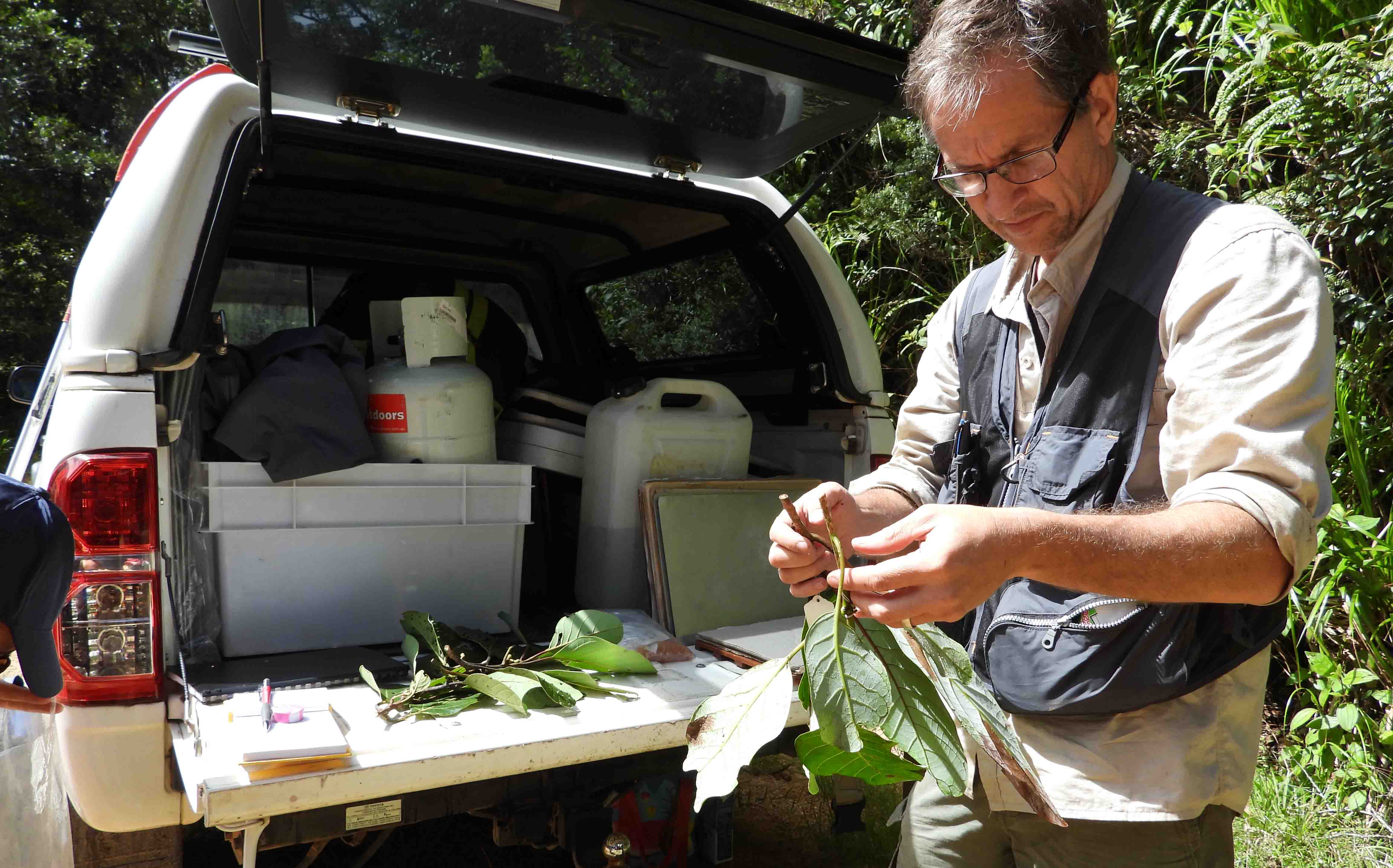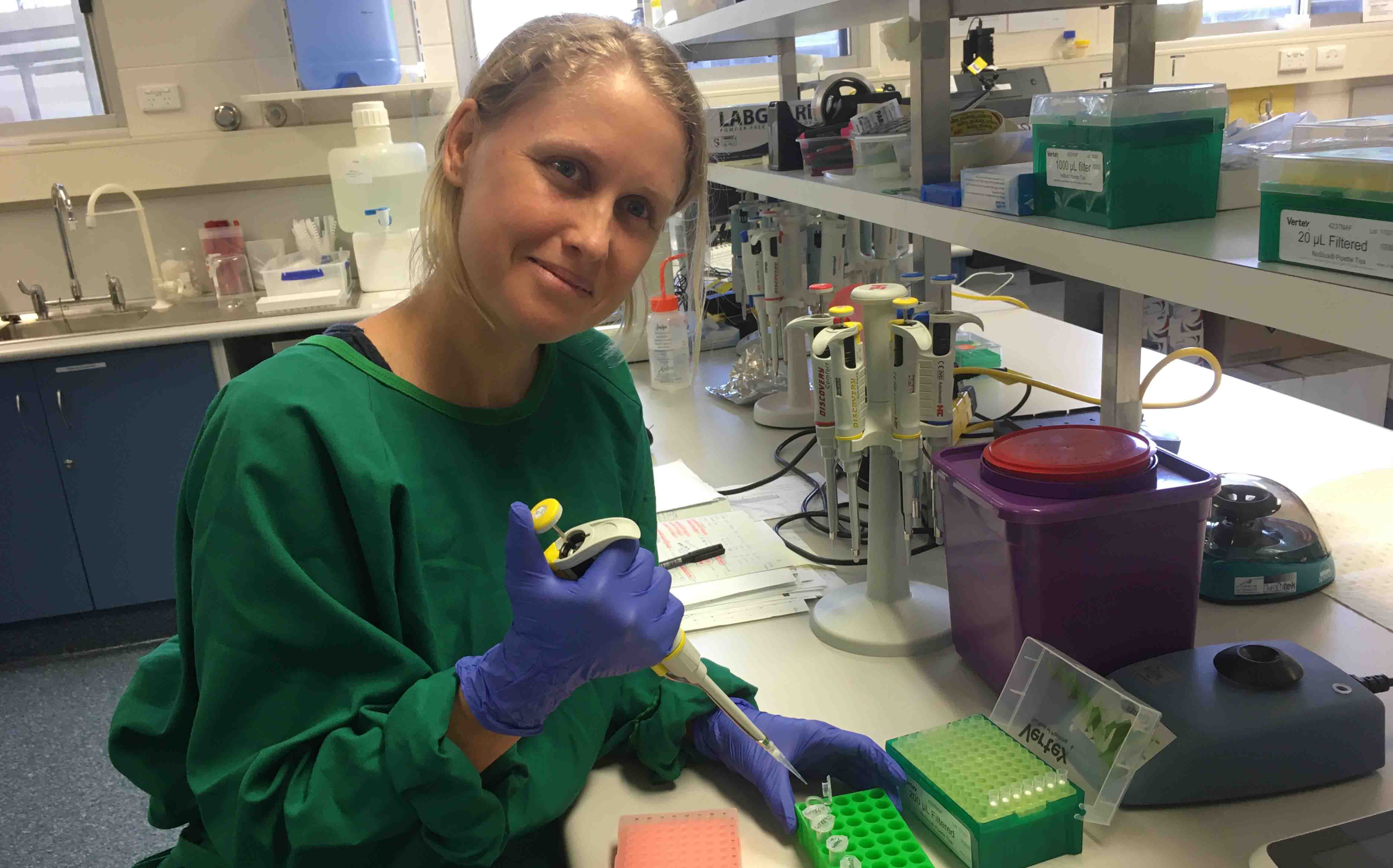Give to JCU Give to Innovation & Discovery Australian Tropical Herbarium
Australian Tropical Herbarium
- Future Students
- JCU Global Experience
- International Students
- Open Day
- How to apply
- Pathways to university
- Virtual Open Day
- Living on Campus
- Courses
- Publications
- Scholarships
- Parents and Partners
- JCU Heroes Programs
- Aboriginal and Torres Strait Islander in Marine Science
- Elite Athletes
- Defence
- Current Students
- New students
- JCU Orientation
- LearnJCU
- Placements
- CEE
- Unicare Centre and Unicampus Kids
- Graduation
- Off-Campus Students
- JCU Job Ready
- Safety and Wellbeing
- JCU Prizes
- Professional Experience Placement
- Employability Edge
- Art of Academic Writing
- Art of Academic Editing
- Careers and Employability
- Student Equity and Wellbeing
- Career Ready Plan
- Careers at JCU
- Partners and Community
- JCU-CSIRO Partnership
- Alumni
- About JCU
- Reputation and Experience
- Chancellery
- Governance
- Celebrating 50 Years
- Academy
- Indigenous Engagement
- Education Division
- Graduate Research School
- Research and Teaching
- Research Division
- Research and Innovation Services
- CASE
- College of Business, Law and Governance
- College of Healthcare Sciences
- College of Medicine and Dentistry
- College of Science and Engineering
- CPHMVS
- Anthropological Laboratory for Tropical Audiovisual Research (ALTAR)
- Anton Breinl Research Centre
- Agriculture Technology and Adoption Centre (AgTAC)
- Advanced Analytical Centre
- AMHHEC
- Aquaculture Solutions
- AusAsian Mental Health Research Group
- ARCSTA
- Area 61
- Lions Marine Research Trust
- Australian Tropical Herbarium
- Australian Quantum & Classical Transport Physics Group
- Boating and Diving
- Clinical Psychedelic Research Lab
- Centre for Tropical Biosecurity
- Centre for Tropical Bioinformatics and Molecular Biology
- CITBA
- CMT
- Centre for Disaster Solutions
- CSTFA
- Cyclone Testing Station
- The Centre for Disaster Studies
- Daintree Rainforest Observatory
- Fletcherview
- JCU Eduquarium
- JCU Turtle Health Research
- Language and Culture Research Centre
- MARF
- Orpheus
- TESS
- JCU Ideas Lab
- TARL
- eResearch
- Indigenous Education and Research Centre
- Estate
- Work Health and Safety
- Staff
- Discover Nature at JCU
- Cyber Security Hub
- Association of Australian University Secretaries
- Services and Resources Division
- Environmental Research Complex [ERC]
- Foundation for Australian Literary Studies
- Gender Equity Action and Research
-
Give to JCU
-
Give to Support Students
- JCU Engineering Futures Fund
- JCU Indigenous Student Support Fund
- JCU On-Campus Accommodation Fund
- JCU Student Hardship Fund
- JCU Experiential Learning Fund
- JCU Orpheus Island Research Station
- JCU Fletcherview Research Station
- JCU Daintree Rainforest Observatory
- Peter Leggat Memorial Fund
- Crozier Prize for Evolution
- Dr Maryanne Balanzategui Prize
- Give to Innovation & Discovery
- Give to Research Stations
- Giving from America
- Impact
- What can I give?
- Bequests & Planned Giving
- Frequently asked questions
- Contact Us
-
Give to Support Students
- Indigenous Legal Needs Project
- Inherent Requirements
- IsoTropics Geochemistry Lab
- IT Services
- JCU Webinars
- JCU Events
- JCU Motorsports
- JCU Sport
- Library
- Mabo Decision: 30 years on
- Marine Geophysics Laboratory
- Office of the Vice Chancellor and President
- Outstanding Alumni
- Pharmacy Full Scope
- Planning for your future
- Policy
- PAHL
- Queensland Research Centre for Peripheral Vascular Disease
- Rapid Assessment Unit
- RDIM
- Researcher Development Portal
- Roderick Centre for Australian Literature and Creative Writing
- Contextual Science for Tropical Coastal Ecosystems
- State of the Tropics
- Strategic Procurement
- Student profiles
- SWIRLnet
- TREAD
- TropEco for Staff and Students
- TQ Maths Hub
- TUDLab
- VAVS Home
- WHOCC for Vector-borne & NTDs
- Media
- Copyright and Terms of Use
- Australian Institute of Tropical Health & Medicine
- Pay review
North Queensland’s tropical mountains are home to an incredible diversity of plants, many found nowhere else in the world. For example, Australia’s only native Rhododendrons are found in these ever-wet cloudy forests, growing with ancient, gnarled Mountain Tea Trees and tiny orchids perched on twigs. However, all these plants are impacted by climate change, with rising temperatures and increasing drought threatening their survival.
The Australian Tropical Herbarium, in partnership with Botanic Gardens in Sydney, Melbourne and Canberra, is helping to ensure their survival through research and the establishment of living collections in southern botanic gardens. These plantings will be the focus of public education programs that highlight the threats to their high mountain homes.
The Australia Tropical Herbarium Fund:
Donations to the ATH Fund support critical conservation work undertaken by the Herbarium through:
- Research into the genetic diversity of these threatened plants, which will help ensure that plantings conserve maximum genetic diversity;
- Seed collecting activities; and
- Training of land managers in the identification and conservation of these species.
JCU is a leading tertiary institution in Australia and the Asia Pacific and among the best universities in the world.
The Australian Tropical Herbarium (ATH), based at the JCU Cairns campus, is a joint venture of the CSIRO, Australian and Queensland Governments and James Cook University. It boasts state of the art facilities and infrastructure for specimen processing and curation, photography, pest and climate control, and field, herbarium and laboratory research.
Research at the Herbarium covers a range of topics including tropical plant and fungal taxonomy and evolution, ethnobotany, ecology, climate change studies, development of identification tools, and regional ecosystem mapping.
Many of North Queensland’s native flora species are impacted by climate change, with rising temperatures and increasing drought threatening their survival. Your donation supports critical conservation work undertaken by the Australia Tropical Herbarium. Their vision is to be a leader in tropical plant biodiversity research that conducts diverse, relevant and innovative research; convert that research into useful products; offer training, inspiration and engagement with the community; and, by collaborating with others, achieve a greater understanding of sustainable tropical systems.

